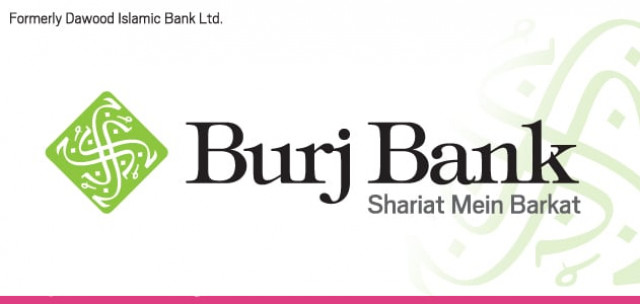Financial services: Burj Bank’s aggressive marketing campaign yields growth, profits
The bank cleaned up its balance sheet, got more capital and is now going after more customers.

Financial services: Burj Bank’s aggressive marketing campaign yields growth, profits
Burj Bank, one of the smallest private sector banks in the country, sees itself as the little bank with big ambitions.
“We are like the ‘Little Engine That Could’,” said Ahmed Khizer Khan, the bank’s newly appointed chief executive officer, in an interview with The Express Tribune, referring to the classic children’s story about a railroad engine that overcomes obstacles when the odds are against it.
The bank is certainly giving it a go, with a rebranding effort that includes a new name (it was previously known as Dawood Islamic Bank) and an aggressive marketing campaign that has already resulted in the bank’s tagline, “Shariat mein Barkat” (Blessings in Shariat) becoming one of the most recognised amongst the entire Islamic banking industry.
Smaller banks had been hit hard by the financial crisis of 2008, with many continuing to bleed long afterwards. Burj Bank was one of them, losing Rs293 million in 2009 and Rs536 million in 2010. Yet 2011 seems to have been a year of renewal for Burj in many ways, with the bank acquiring a new identity and a new management team after the main shareholders injected Rs1.8 billion into the bank in June 2011.
The name – which means “tower” in Arabic – was a suggestion by the advertising agency Interflow and is meant to evoke the fact that 85% of the bank’s shares are now held by Middle Eastern entities. About 33% of the bank now owned by the Islamic Corporation for the Development of the Private Sector (ICD), a subsidiary of the Jeddah-based Islamic Development Bank (IDB).
Marketing seems to have been a singular focus of the bank. While Burj has an almost negligible market share in terms of the total deposits in Pakistan, its advertising campaign has almost single-handedly taken the share of Islamic banking in total banking advertising from 1% to 14%.
This remarkably aggressive campaign seems to be paying dividends already. Company executives say that the bank’s deposits have grown by close to 60% from an admittedly low base of Rs12.6 billion in December 2010 to Rs20 billion in December 2011. Most of that deposit growth came not from a few institutional clients but rather a large number of small businesses and retail depositors. The bank has also swung to a profit, earning about Rs43 million during the first nine months of 2011 and is expected to announce a profit for the full year.
Khan says the bank is now looking towards organic expansion, with about 25 branches expected to be opened in the latter half of the current year, adding to the 50 that Burj already has.
“When I took over this bank, it was a traditional consumer bank and a traditional commercial bank,” said Khan. “I am now looking to expand into investment banking, as well as building a trade finance and cash management business.”
His reasons for doing so seem to be focused on the long-term health of the bank. “When interest rates start falling putting pressure on banking spreads, it helps to have steady revenues from fee-based businesses,” he said, referring to the net interest margin, or the difference between what banks charge their borrowers and what they pay out to their depositors.
Despite its small size, however, Burj has already managed to become the principle banker to some big name clients in Pakistan, including the Sitara Group, a diversified industrial conglomerate with interests in energy and textiles, and Haier Pakistan, the local subsidiary of the Chinese consumer goods giant.
How has Burj managed to do this? “We now have the risk appetite to lend because we have one of the cleanest balance sheets across the board,” said Khan.
The bank still does not meet the State Bank of Pakistan’s minimum capital requirements, with only Rs6 billion as opposed to the Rs8 billion required by law. Senior bank officials say that, given the bank’s relative stability, regulators have been willing to give it time to meet the statutory requirements on minimum capital.
Unlike most of its competitors, the bank is not yet publicly listed, but plans to do so when the market conditions are right. “We already behave like a public company. It’s just a matter of the right time,” said the CEO.
Published in The Express Tribune, January 27th, 2012.



















COMMENTS
Comments are moderated and generally will be posted if they are on-topic and not abusive.
For more information, please see our Comments FAQ